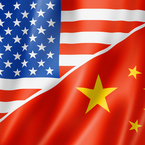
Ambassador Karl W. Eikenberry
Karl Eikenberry is the William J. Perry Fellow in International Security at the Center for International Security and Cooperation and a distinguished fellow with the Shorenstein Asia-Pacific Research Center at Stanford University. He served as the US ambassador to Afghanistan from May 2009 until July 2011 and had a thirty-five-year career in the US Army, retiring with the rank of lieutenant general. He is a graduate of the US Military Academy, has earned master’s degrees from Harvard University in East Asian studies and Stanford University in political science, was awarded an Interpreter’s Certificate in Mandarin Chinese from the British Foreign Commonwealth Office, and earned an advanced degree in Chinese history from Nanjing University. Ambassador Eikenberry serves as a trustee for the International Institute for Strategic Studies, the Asia Foundation, and the National Committee on American Foreign Policy and is a fellow of the American Academy of Arts and Sciences.






